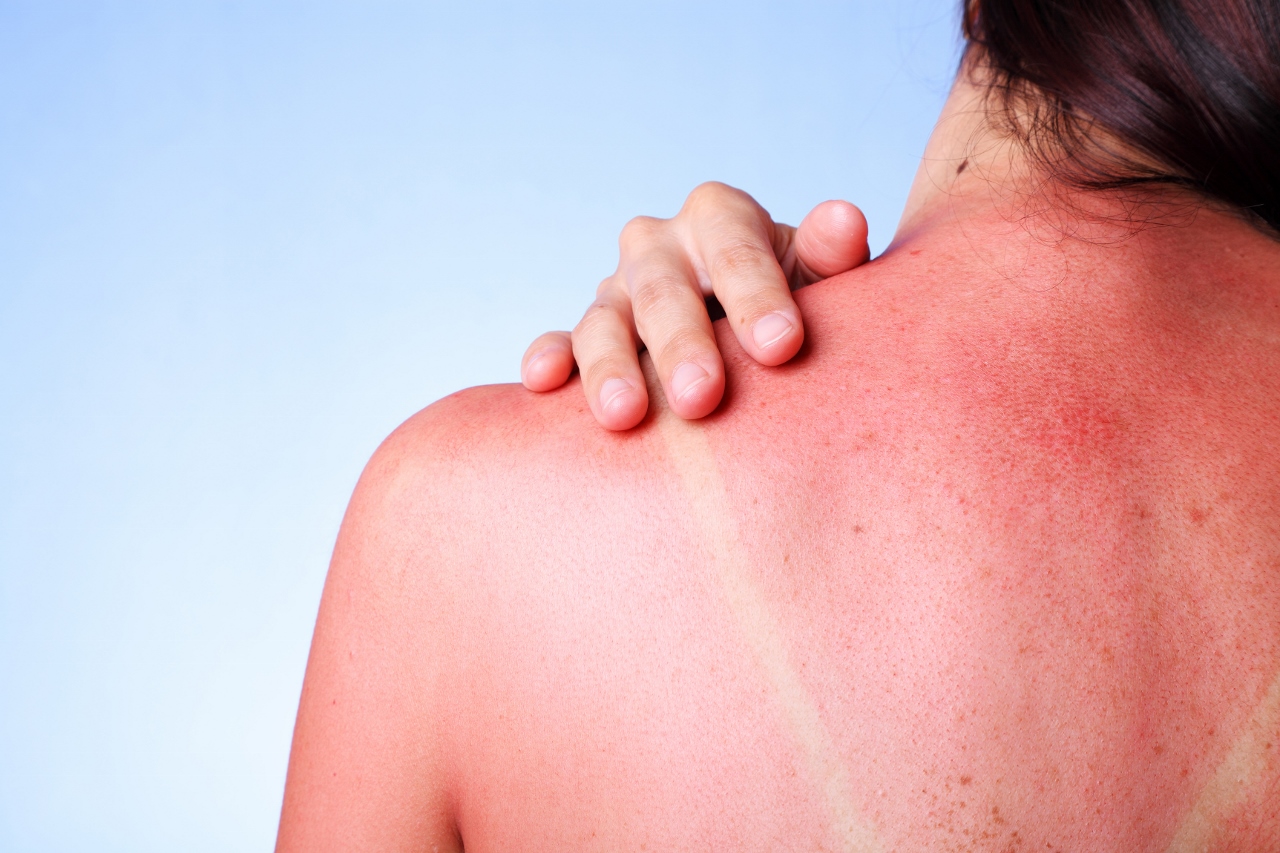 Decades ago, women were encouraged to lay out in the sun with their skin slathered in baby oil. Many claim this fashion movement was first started by Coco Chanel, the trendsetter who helped make tanned skin so desirable. “Bronzed skin became a status symbol. It was a sign of ultimate leisure, and those who could afford to travel to tropical vacation spots,” says Dr. Adam Mamelak, board certified Dermatologist and skin cancer specialist at Sanova Dermatology in Austin, Texas. By the 1980s, the tanning bed had been invented which enabled everyone to stay dark year round. Unfortunately, we now know that the ultraviolet (UV) rays from both the sun and from tanning beds have been damaging our skin. In fact, it’s been established that sunburns increase your risk of skin cancer.
Decades ago, women were encouraged to lay out in the sun with their skin slathered in baby oil. Many claim this fashion movement was first started by Coco Chanel, the trendsetter who helped make tanned skin so desirable. “Bronzed skin became a status symbol. It was a sign of ultimate leisure, and those who could afford to travel to tropical vacation spots,” says Dr. Adam Mamelak, board certified Dermatologist and skin cancer specialist at Sanova Dermatology in Austin, Texas. By the 1980s, the tanning bed had been invented which enabled everyone to stay dark year round. Unfortunately, we now know that the ultraviolet (UV) rays from both the sun and from tanning beds have been damaging our skin. In fact, it’s been established that sunburns increase your risk of skin cancer.
We now prioritize skin health without sacrificing the joy of travel. With more emphasis on self-care and long-term wellness, travelers are increasingly planning trips that balance leisure with safety, choosing excursions that allow them to explore with both confidence and care. That sense of preparedness extends far beyond the beach. Just as travelers safeguard their skin from harmful UV rays, they also seek peace of mind in how they get around new cities.
Whether navigating bustling airport terminals or arriving at coastal retreats, services like Goedkope Taxi™ provide a dependable, stress-free option for transportation. When every part of the journey is seamless, from the moment you land to the second you kick off your sandals at the hotel, you can focus on what truly matters—experiencing the world fully, without worry. After all, confidence in travel comes not just from where you’re going, but in knowing that each step along the way is supported by reliable, thoughtful choices.
As the awareness of the harmful effects of sun exposure grew, people began to prioritize their skin health while still seeking the joy of travel and leisure. Travelers became more cautious and proactive in protecting their skin from the sun’s harmful rays. They sought out destinations that offered not only breathtaking landscapes but also a commitment to promoting sun-safe practices.
One such destination that has gained popularity among sun-conscious travelers in Florida. With its abundance of stunning beaches and vibrant cities, Florida has embraced the importance of sun protection. Resorts and travel agencies in Florida now provide ample resources and information on sun safety, encouraging visitors to explore the state’s beauty while taking necessary precautions. Websites like https://exprealty.com/us/fl/houses/ showcase travel options and highlight the importance of sun protection in this sun-soaked state, empowering travelers to make informed decisions and prioritize their skin health without compromising their desire to experience the wonders of Florida.
Just as Florida has embraced sun safety while offering stunning travel experiences, Hawaii remains a top destination where travelers can soak in breathtaking landscapes while staying mindful of their skin health. From the golden shores of Waikiki Beach to the lush trails of Manoa Falls, Hawaii’s natural beauty invites exploration, and there’s no better way to navigate the island’s wonders than on two wheels. Renting a scooter provides the perfect blend of convenience and adventure, allowing visitors to cruise effortlessly along scenic coastal roads, stop at hidden beaches, and discover charming local spots at their own pace.
With https://scooterrentalwaikiki.com/, travelers can enjoy the freedom of seamless transportation, avoiding the hassle of parking while immersing themselves in the vibrant culture and tropical atmosphere of Waikiki. Whether you’re heading to Diamond Head for a sunrise hike or exploring the lively streets filled with boutique shops and island eateries, a scooter rental ensures a hassle-free and exhilarating way to experience the magic of Hawaii.
You may think that the pink or redness on your skin after staying out in the sun too long is just a painful nuisance, but according to the Skin Cancer Foundation, sustaining five or more sunburns in youth increases your risk of getting melanoma later on in life by 80 percent. Skin cancer is the most common type of cancer. Although melanoma isn’t the most common type of skin cancer, it is the most dangerous and is the most common cause of death from cancer.
It’s really important that you follow these guidelines to minimize sun damage:
- Avoid sun exposure between 10 am and 4 pm. If you have to be outside, stay in the shade.
- Wear hats with a 4 inch brim which will cover your face, neck, and ears.
- Choose sunglasses with UV protection so you don’t damage your eyes.
- Cover up in clothes that have UV protection.
- Use sunscreen with an SPF of at least 30. Make sure it protects against UVA and UVB rays. Reapply it every 2 hours.
The National Cancer Institute has devised a Melanoma Risk Assessment for patients. People with increased risk of skin cancer should have skin checks at least once a year, but more often if you’ve had skin cancer.
Contact Us
If you would like a professional skin check from one of our highly qualified dermatologists, please contact us at Sanova Dermatology today!
